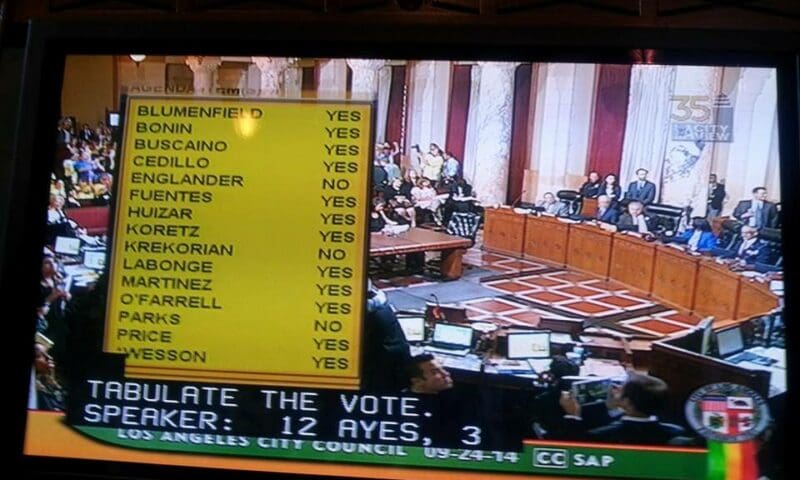
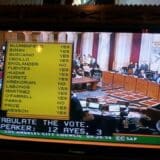
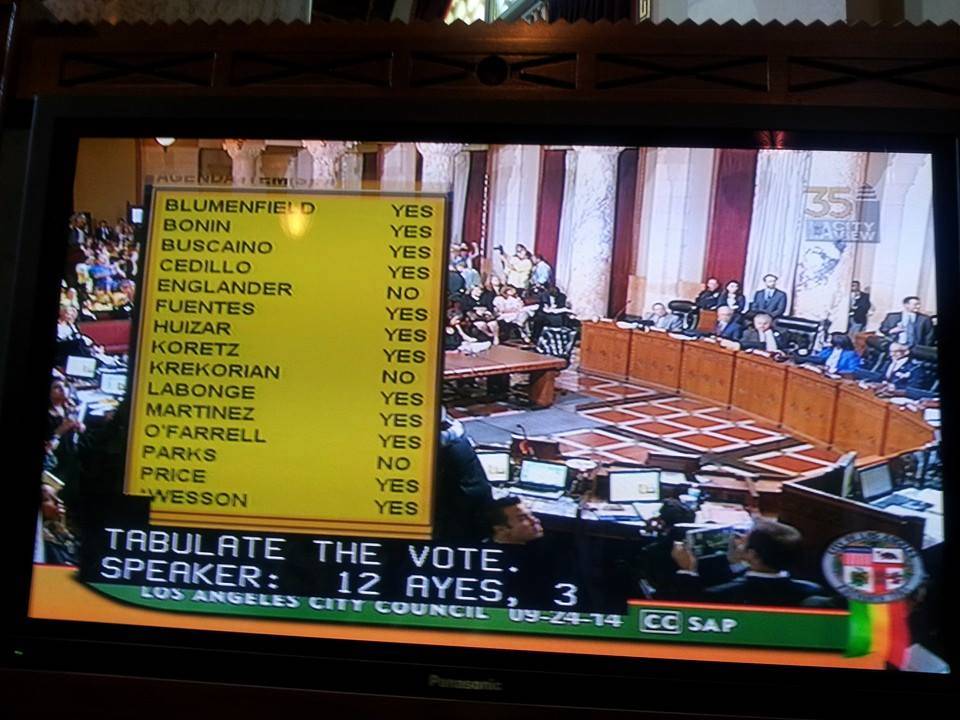
The Los Angeles City Council today voted to raise the minimum wage for workers employed by the city’s largest hotels. According to City News Service:
The council voted 12-3 to approve the minimum wage, with council members Bernard Parks, Mitchell Englander and Paul Krekorian dissenting. Because the decision was not unanimous, the issue will come back for a final vote Oct. 1. If approved, hotels with 300 or more rooms would need to start paying the $15.37 minimum wage by July 1 and those with at least 150 rooms would have to comply by July 1, 2016.
Capital & Main will post a detailed story of the historic vote later today.
» Read more about: L.A. Hotel Wage Hike Passes City Council »
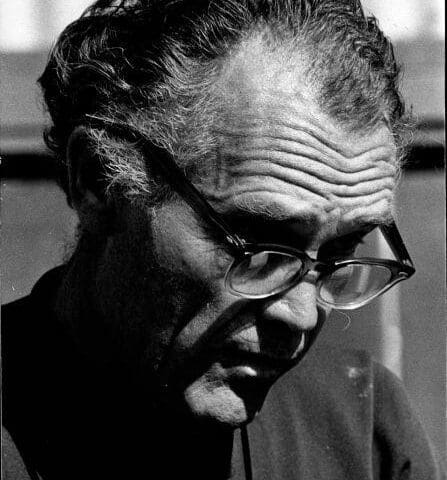
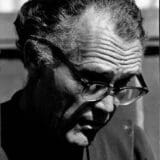
The police stop a young man. An officer shoots, killing him. The officer claims self-defense, that the killing was warranted.
The community, having endured years of unequal treatment at the hands of law enforcement and other municipal agencies, responds in anger. Protests ensue. Hard feelings persist, as do demands for law-enforcement accountability.
Sound familiar? No, this is not the case of 18-year-old Michael Brown in Ferguson, Missouri. The young man in question was Augustin Salcido, 17, and the incident occurred in Los Angeles more than six decades earlier. The Internet did not exist at that time and local television audiences were miniscule, so the Civil Rights Congress of Los Angeles produced a pamphlet, Justice for Salcido. In its introduction, author and civil rights advocate Carey McWilliams described the killing as part of a historical pattern of “continued suppression of the Mexican minority.”
Fred Ross,
» Read more about: Fred Ross, Cesar Chavez and Lessons for Ferguson »
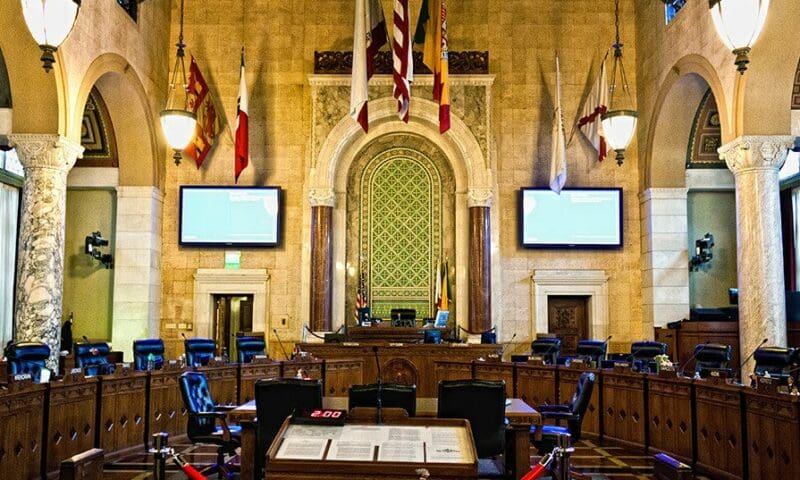

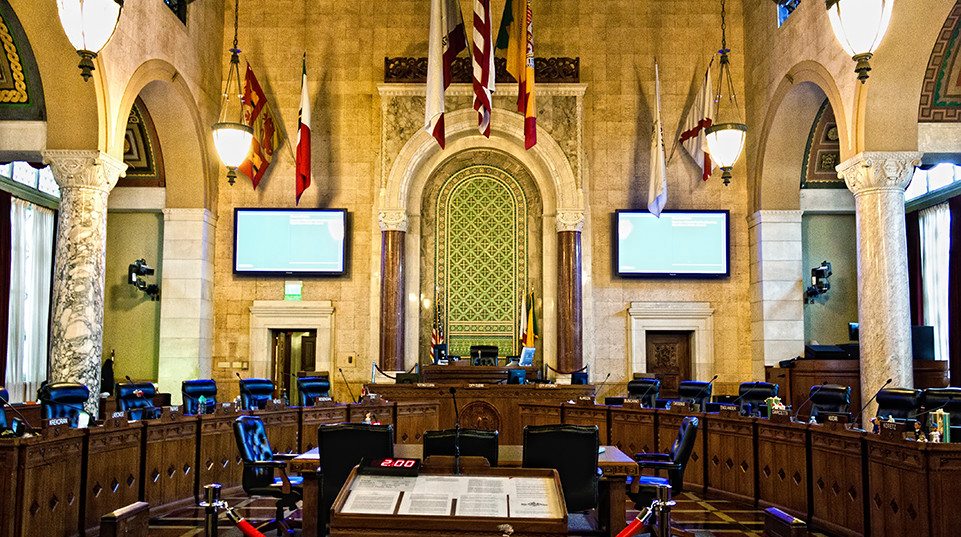
Thousands of low-wage workers in Los Angeles are poised to receive a substantial pay bump, depending on a critical City Council vote scheduled for Wednesday. On the table: a $15.37 hourly wage for hotel employees at some of the biggest and most lucrative non-unionized hotels in the City of Los Angeles.
In June a Los Angeles City Council committee directed city staff to draft an ordinance that would require hotels with 300-plus rooms to meet a $15.37 hourly wage benchmark by July 2015. Hotels with more than 125 rooms would have to meet the standard in 2016. The full council is expected to take up the proposal Wednesday morning after a Tuesday hearing at the Economic Development Committee.
Business interests complain that the measure would cost jobs, but proponents argue that tourism and the hotel industry are experiencing record growth and creating local jobs. A study prepared by the Economic Roundtable,
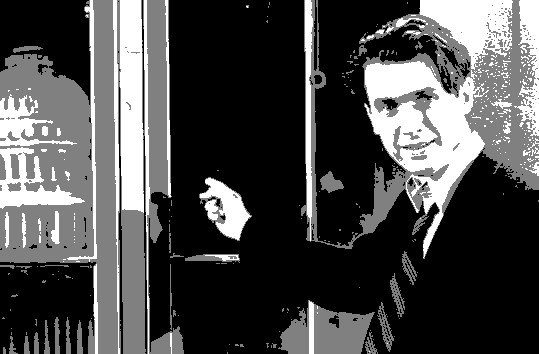

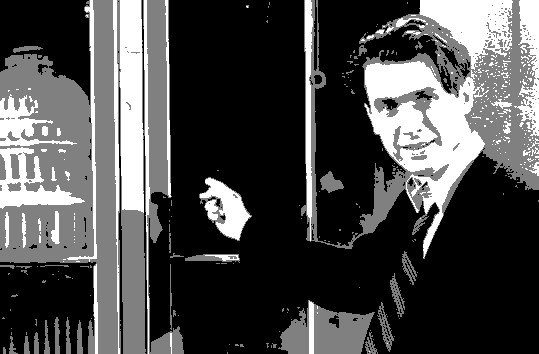
For Americans today – particularly for bloggers, Senators, reporters and activists — it’s pretty much always a definitive rebuke to accuse someone of “acting politically.” Reflexive disdain for political motives is deeply rooted in our popular culture, which so often assumes that ethics is one thing, politics quite another. “You quit a profession you love for ethical reasons,” the President tells the main character on CBS’s Madam Secretary. “That makes you the least political person I know.”
But however culturally pervasive and recognizable this kind of disparagement may be – however tempting it is to call out someone for their political motives — there are reasons to do so sparingly.
To see why, it’s worth reflecting on two of the most striking recent instances in which base political motives have been alleged. Both the right and left agreed that Barack Obama’s decision to postpone executive action to reduce deportation of undocumented immigrants was unprincipled and political.
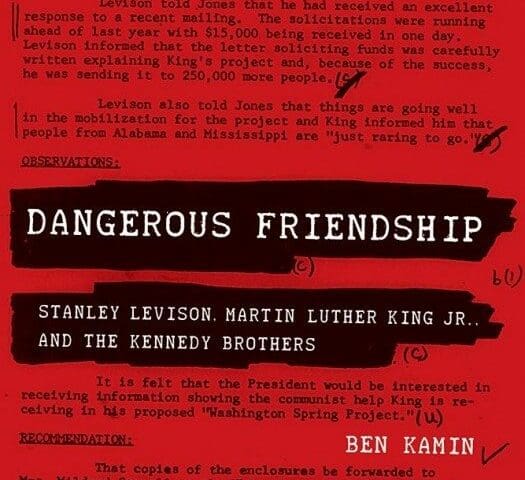
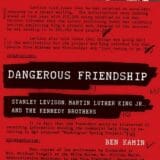
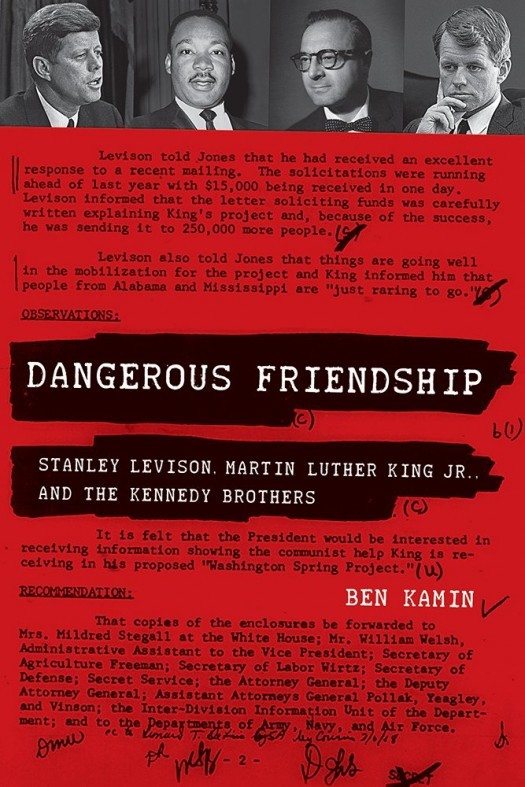 FBI Director J. Edgar Hoover tried to erase the name of Stanley Levison from civil rights history in the 1960s. Now historian Ben Kamin is putting Levison firmly back into the historic record with his new book, Dangerous Friendship: Stanley Levison, Martin Luther King, Jr., and the Kennedy Brothers.
FBI Director J. Edgar Hoover tried to erase the name of Stanley Levison from civil rights history in the 1960s. Now historian Ben Kamin is putting Levison firmly back into the historic record with his new book, Dangerous Friendship: Stanley Levison, Martin Luther King, Jr., and the Kennedy Brothers.
Levison was a successful Jewish businessman and member of the American Communist Party until 1956, when the Soviet invasion of Hungary left him disillusioned. He refocused his organizing skills, business and labor contacts, energy and intelligence to support the work of Martin Luther King Jr., helping to found, manage and fund King’s organization, the Southern Christian Leadership Conference. In the process, Levison became an intimate friend of King and part of the tight circle of confidants who helped develop King’s campaigns and sustain him emotionally.
What drew Levison, and hundreds of other American Jews like me,
» Read more about: Book Review: MLK’s Dangerous Friendship »
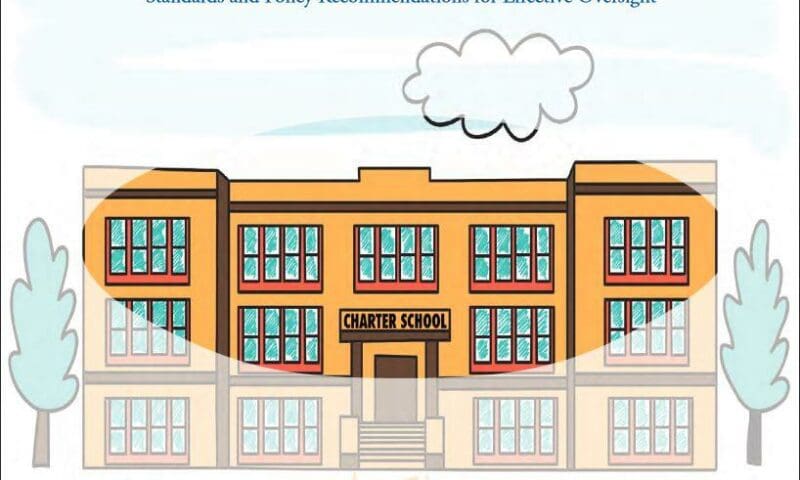
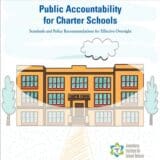
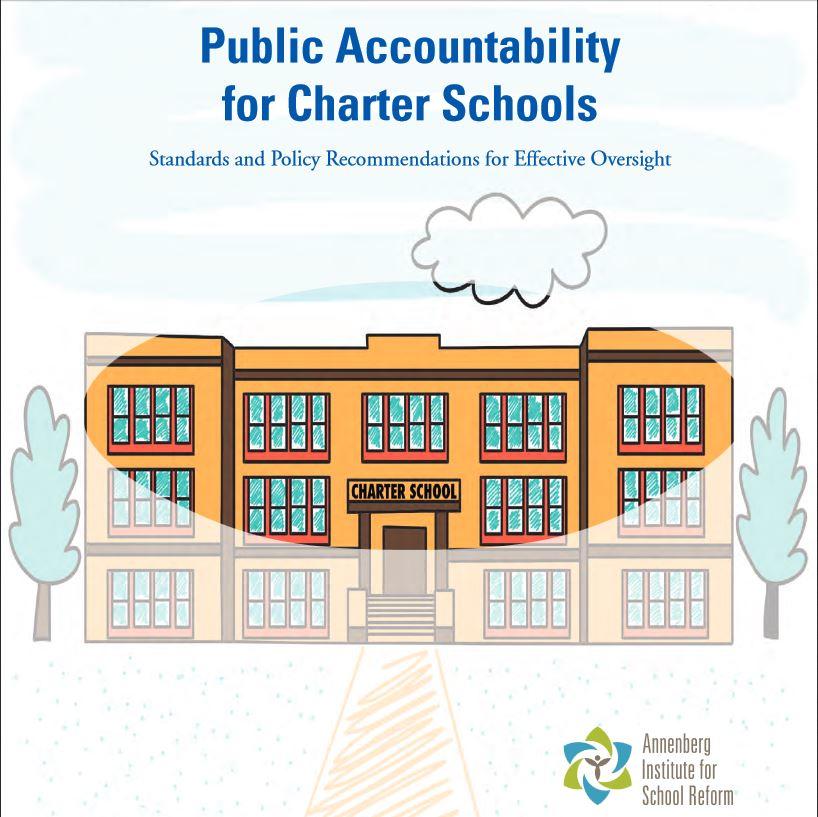 When charter schools first appeared in the ’90s, they aimed to experiment with innovative educational strategies to later implement in all public schools. Fast forward to today, when charters have grown into a national industry with 2.5 million students, 6,000 schools and a growing market of management services, vendors, policy shops and advocacy organizations – an industry that has its sights set on the nearly $750 billion spent each year on public education in the U.S.
When charter schools first appeared in the ’90s, they aimed to experiment with innovative educational strategies to later implement in all public schools. Fast forward to today, when charters have grown into a national industry with 2.5 million students, 6,000 schools and a growing market of management services, vendors, policy shops and advocacy organizations – an industry that has its sights set on the nearly $750 billion spent each year on public education in the U.S.
A new report by the Annenberg Institute for School Reform, however, shows that state charter laws, regulations and oversight have not kept up with the rapid growth of charters. The lack of effective oversight has resulted in far too many cases of fraud and abuse, too little attention to equity, wasted taxpayer money and eroded public trust.
Far too many charters have been plagued by scandals, abuses and poor educational standards.
» Read more about: Study Calls for New Charter School Standards »



To the five members of the Long Beach Harbor Commission, the decision to renew an old lease for a coal-export terminal was an easy one. Metropolitan Stevedore has operated a dry-bulk terminal at the Port of Long Beach since 1962, from which it moves everything from soda ash to coal to petroleum coke (“petcoke”), a carbon-intensive refinery byproduct. Oxbow Carbon and Minerals, run by William Koch, brother to Charles and David, has long subleased a coal shed from Metro, where it stores petcoke and coal for export. Under the new contracts, Metro will continue its lease for the next 20 years, and Oxbow will now lease directly from the Port for 15. Beyond that, not much has changed.
“The amount of coal exported is going to be roughly the same,” says Port spokesman Art Wong. “The facility’s going to operate as it always has.” For the Port,
» Read more about: Coal Is Still King at the Port of Long Beach »
Cashing in on Kids, a joint project of In the Public Interest and the American Federation of Teachers, is working to ensure that parents, teachers, students and taxpayers continue to have a strong voice in how we run our schools and educate our nation’s children. Below is an action that needs your attention.
The FBI is currently investigating Concept Schools, Inc., a charter management company, which operates 19 schools in the state of Ohio. The federal investigation is for “white-collar crime,” self-dealing, and misusing federal money meant for the neediest students.
Given the seriousness of the allegations, it is likely that all 19 Concept charter schools will be shut down, but too often this puts taxpayers on the hook for the schools’ liabilities and debts.
Can you sign our petition today and help us protect taxpayers from any more grief and costs created by Concept Schools?
» Read more about: Make Charters — Not Taxpayers — Pay for Closed Schools »



Sunday’s extreme heat didn’t prevent some 200-plus Angelenos from gathering in the Ann and John Nickoll Family Sanctuary at Temple Isaiah for an informal economic summit. The audience for this Westside event, partly sponsored by Bend the Arc, the American Civil Liberties Union and the Los Angeles Alliance for a New Economy, included District 5 Councilman Paul Koretz.
The crowd saw a screening of economist Robert Reich’s 2013 film Inequality for All. Narrated by Reich, this documentary provides some of the most incisive analyses of the causes of the income gap yet found in the popular media. The film is recommended viewing for anyone wanting to learn how the American middle class has become an endangered species.
But many in the audience had already seen the film and after the lights came up emcee Serena Zeise brought out the guest speaker and Reich friend, Harold Meyerson.
» Read more about: Harold Meyerson on Economic Inequality’s Tipping Point »
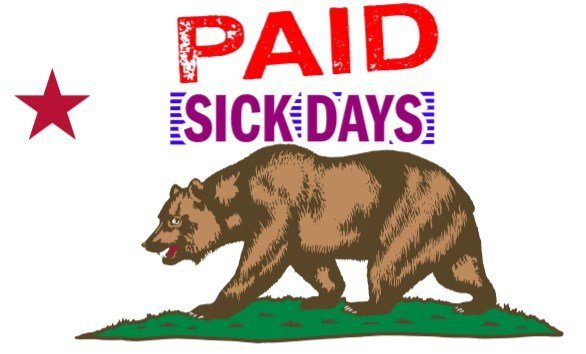
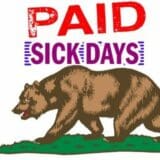

On September 10 Governor Jerry Brown signed Assembly Bill 1522 into law. The landmark legislation dramatically expands labor benefits for an estimated 6.5 million private-sector workers (including seasonal, part- and full-time employees), mandating they earn at least three paid sick leave days a year from their employers, effective July 1, 2015.
“AB 1522 is transformative,” the bill’s author, Assemblywoman Lorena Gonzalez (D-San Diego), told Capital & Main. Gonzalez, who chairs the Assembly’s Select Committee on Women in the Workplace, added: “If you look back in history California has always led the way in furthering workers’ rights, from the minimum wage to an eight-hour workday.”
Before Governor Brown signed AB 1522, about 39 percent of the state’s labor force earned no paid sick leave benefits. As a result many workers faced two undesirable options when ill: Stay home and lose pay, or show up to work and expose others,